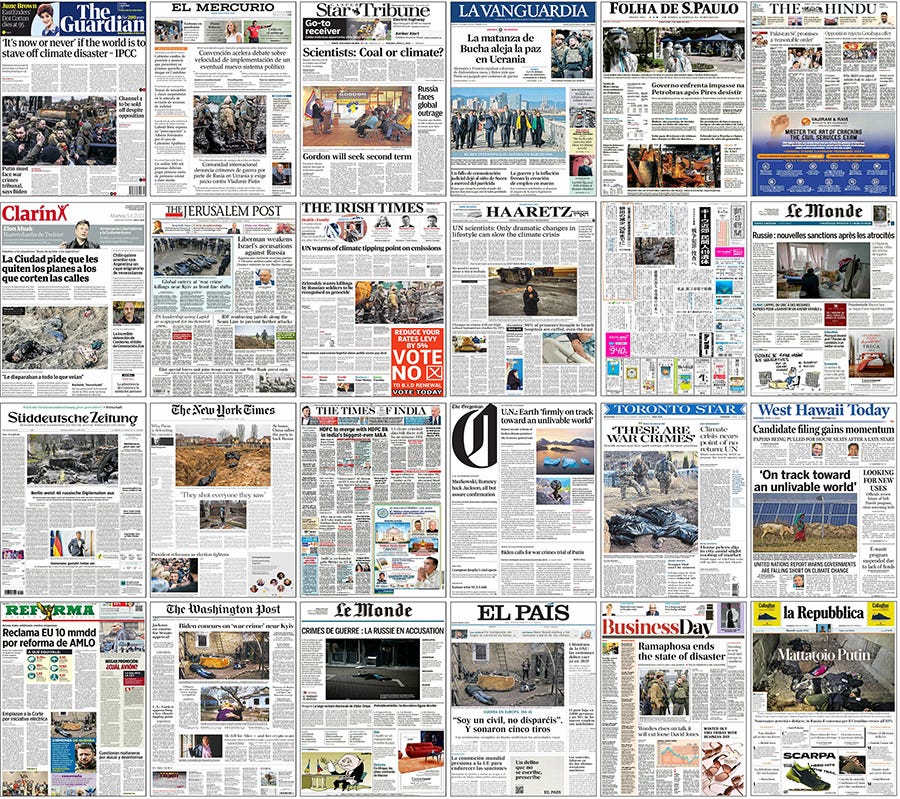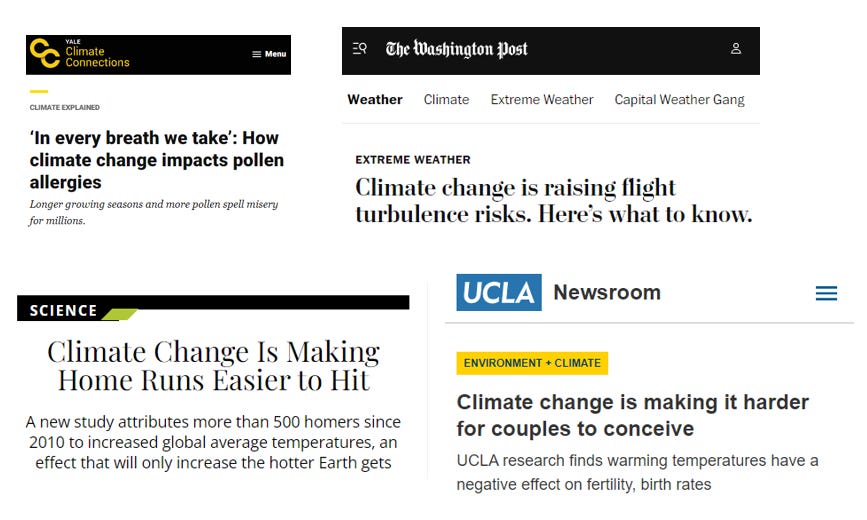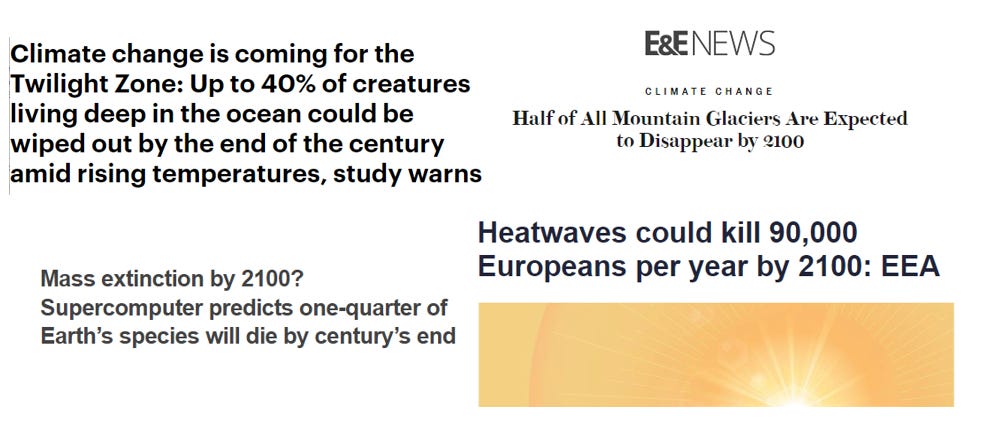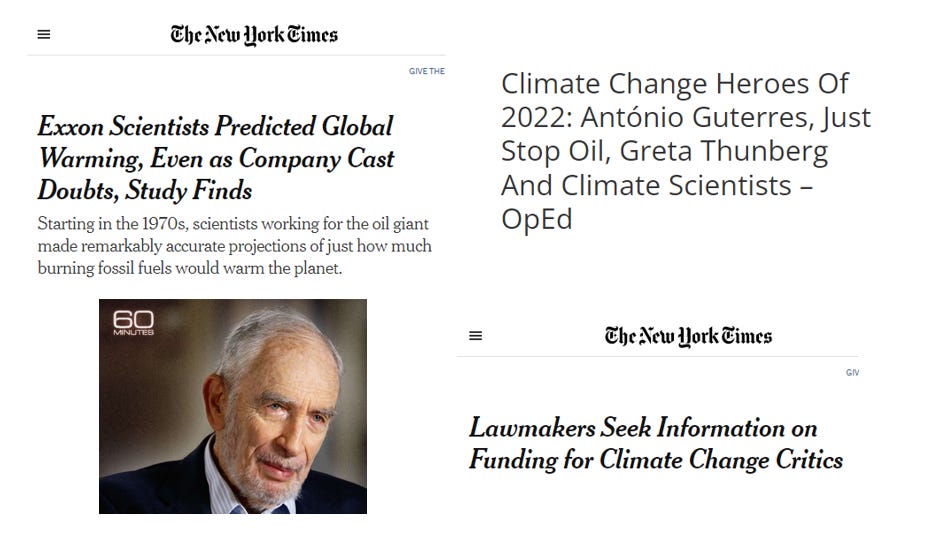https://rogerpielkejr.substack.com/p/top-five-climate-change-narratives
Top Five Climate Change Narratives in the Media
Coverage of climate has become more about narrative promotion than news

I’ve seen a lot over the past three decades. For instance, I’ve seen my own research on climate go from being widely covered in the late 1990s to 2000s, to journalists actively advocating for me to be fired in the 2010s to today, where thankfully my writing exists in this parallel universe called Substack. All this time my work remains pretty much the same — my research remains widely cited in the research community, including most recently by all three working group of the IPCC. It is not me that has changed.
…
Below I provide a list of the five most common types of climate stories that I see in the legacy and specialist media. I’ll admit to being a bit cheeky — it is Friday after all, but at the same time I also think there is a lot of truth to the list below. I’m calling out climate journalism because I am seeing its pathological effects on public views (especially among young people), on the research community and in policy discussions, including political advocacy. Climate is too important to be just another cul-de-sac of identity politics.
…
With that, let’s get to the list!

- We can explain everything with climate change
Hay fever? Bumpy fight? Home runs? Infertility? There is probably no phenomena in the world that has not at one time or another been linked to climate change. Part of the ubiquity of this type of article is the presence of so many journalists now on the “climate beat” having to come up with frequent climate-themed stories to satisfy their editors and their niche. This has the knock-on effect of creating incentives for researchers to produce studies with links to climate — no matter how tenuous or trivial. This dynamic has been well described my Mike Hulme as “climate reductionism.”

- The coming apocalypse
If it bleeds, it leads. There is a great market for studies that offer scary predictions of the future, typically employing implausible scenarios (hello RCP8.5). These studies are readily transformed into university and research institute press releases, which are then pretty much reprinted as news. …

- Good guys and bad guys
In any morality tale, it is important to know who the good guys and bad guys are. Usually this is easy, but in climate it is difficult as there are a lot of legitimate experts out there, but only a subset share the proper views. Hence, the media produces a steady stream of articles helping to identify those who are heroes and those who are villains. Associating someone with Republicans or fossil fuels is a tip that this person is a villain, and a similar association with the renewable industry or Democrats means that they are onside.

- The extreme weather that just happened
Weather is a renewable resource. It happens every day, and somewhere it is extreme. Hurricanes, tornadoes, floods, drought, hail, oh my! It has become fundamental to the climate beat to associate, link, connect — pick your favorite — the extreme event that just happened with climate change. Forget the IPCC and rigorous standards of detection and attribution. There are studies to cherry pick, quotable experts and a new cottage industry of rapid event attribution studies. Extreme weather is no longer about the weather.

- Cheerleading for our team
…A big part of climate reporting these days is simply climate advocacy. For instance, when the Inflation Reduction Act was being debated earlier this year, the media simply cheered its passage, printing the views of those paid to promote it by the renewables industry, and nary a critical voice to be heard. More recently, criticism of the IRA has appeared to become legitimate as part of the cheerleading to go beyond the IRA. Climate reporting is apparently a team sport.



